Let me introduce you my summary of The Trial by Franz Kafka. Written in 1914-1915 and published posthumously in 1925, the novel tells the story of Josef K., who is arrested and put on trial by a remote, inaccessible authority, with the nature of his crime revealed neither to him nor to the reader. The narrative follows Josef K.’s increasingly desperate efforts to understand and escape the mysterious judicial process he finds himself subjected to. The novel is a grim exploration of bureaucracy and the seemingly arbitrary administration of justice, resonating with themes of existential anxiety and the individual’s powerless position in the face of incomprehensible social forces.
Short Recap
Josef K., a bank officer, wakes up one morning to find himself under arrest. Inexplicably, he remains free to move around and go about his daily business, but his mysterious legal troubles begin to consume his life. He receives notification of a court hearing, and upon attending, he discovers a bizarre, informal courtroom in the attic of a suburban tenement. The court’s proceedings are incomprehensible to him, and no one is willing to inform him of the nature of his crime.
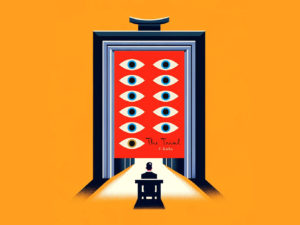 Throughout the year, K. encounters various characters: lawyers, court officials, and other defendants who are all part of the judicial system that remains frustratingly out of reach and influence. He hires an Advocate to represent him, who seems to do little but offer empty promises and cryptic advice. K. visits the Advocate often, seeking any information that could help his case, but finds no clear answers.
Throughout the year, K. encounters various characters: lawyers, court officials, and other defendants who are all part of the judicial system that remains frustratingly out of reach and influence. He hires an Advocate to represent him, who seems to do little but offer empty promises and cryptic advice. K. visits the Advocate often, seeking any information that could help his case, but finds no clear answers.
His professional and personal life begins to unravel as the case, never fully understood, consumes him. He engages with a painter who seems to have some knowledge of the court system and its inner workings, but again, no concrete information is forthcoming. Josef K.’s relationships with women are also affected by his ongoing trial; they seem to be connected with the court, further blurring the lines between his personal ordeal and the omnipresent judicial system.
As his birthday arrives, marking a year since his arrest, two men come for him. They lead K. out of the city to a quarry, where they execute him. His last words express his own perceived guilt, as he dies feeling like a dog, reflecting on the injustice and absurdity of his situation. The trial and the charge against him are never made clear, leaving the reader with a profound sense of the arbitrary and oppressive nature of the system that has judged him.
Detailed Plot Summary Chapter-by-Chapter
Chapter 1: Arrest
Josef K. wakes up on his thirtieth birthday to find himself under arrest by two warders in his own home. Despite the arrest, he is told he is not to be taken away and can continue his daily life as usual. K. goes to work and finds it difficult to focus, constantly pondering the reasons for his arrest.
Chapter 2: First Interrogation
K. receives a notification about his first court hearing. He arrives at a tenement building on a Sunday and finds a makeshift courtroom in the attic. The hearing is chaotic and nonsensical; K. delivers a speech denouncing the process and the crowd reacts with a mixture of support and opposition. The chapter ends with no clear progress in his case.
Chapter 3: In the Empty Conference Hall – The Student – The Offices
K. returns to the court on his own initiative but finds it empty. He meets a student who appears to be in a relationship with a woman, Miss Bürstner, whom K. knows. The student escorts K. to the law court offices, where he encounters various clerks and officials engaged in arbitrary and seemingly meaningless tasks.
Chapter 4: Miss Bürstner
K. seeks out Miss Bürstner in his boarding house to explain the absurdity of his situation and possibly gain some sympathy or understanding. Their conversation is interrupted, and K. forcibly kisses her. The chapter showcases K.’s increasing paranoia and desire for human connection amidst his bewildering circumstances.
Chapter 5: The Whipper
K. discovers a small room in the bank where he works, which has been repurposed as a punishment chamber. Inside, a whipper is beating the warders who initially arrested K., allegedly because they had mishandled his case. K. is shocked and tries to intervene, but the warders tell him that the punishment is justified. The presence of the punishment room within the bank suggests the pervasive and intrusive nature of the court’s power.
Chapter 6: K.’s Uncle – Leni
K.’s uncle, a country landowner, arrives in the city and takes charge of K.’s case, dismayed by his nephew’s lack of action. He introduces K. to an Advocate, Herr Huld, who agrees to represent him. During the visit to the Advocate’s home, K. meets Leni, the Advocate’s nurse, who seduces him. This chapter reveals the complex web of relationships surrounding K., including those who seem to help but may also be ensnaring him further in the judicial system.
Chapter 7: Lawyer – Manufacturer – Painter
While continuing to work on his case, K. grows increasingly frustrated with the Advocate’s lack of progress. A manufacturer tells K. about a painter, Titorelli, who has connections within the court. K. visits Titorelli, who offers to sell him “acquittals,” but K. realizes these do not actually end the trial, only prolong the process. Titorelli paints a grim picture of the court system, with its endless delays and lack of finality.
Chapter 8: Block, the Tradesman – Dismissal of the Lawyer
K. encounters another client of the Advocate, a tradesman named Block, who has been caught in the trial for five years. Block’s subservient behavior towards the Advocate disgusts K., who resolves to take control of his defense. K. dismisses the Advocate, deciding to represent himself and face the court directly, though this act seems more desperate than empowering.
Chapter 9: In the Cathedral
K. is summoned to a cathedral by a priest, who turns out to be the court’s prison chaplain. The priest tells K. a parable about a man seeking access to the law through a doorkeeper, which reflects the nature of K.’s own quest for justice. The parable, open to many interpretations, suggests that the law is both inaccessible and inscrutable, and that understanding and justice may be unattainable.
Chapter 10: The End
On the eve of his thirty-first birthday, exactly one year after his arrest, two men come for K. They lead him to a quarry outside of town, where they execute him. K.’s last realization is one of guilt and resignation: “Like a dog!” he said, it was as if the shame of it should outlive him. This final act completes the allegory of the oppressive and arbitrary nature of the system that has judged him, with K. never having understood his crime or had the chance to truly defend himself.
Main Characters Overview
Josef K.
Josef K. is the protagonist of the story, a chief clerk at a bank. He is respectable, diligent, and by all accounts a model citizen. Yet, on his thirtieth birthday, he finds himself arrested without explanation. Throughout the novel, K. grapples with the absurdity of the law and his inexorable decline as he tries to confront a faceless and bureaucratic judicial system. His character represents the individual’s struggle against oppressive structures.
The Warders
The warders are the first representatives of the court system that K. encounters. Franz and Willem are not menacing figures; instead, they are somewhat comical and petty. Their presence in K.’s life begins the series of humiliations he endures, and they later appear to be punished themselves, reflecting the arbitrary nature of the justice system.
The Inspector
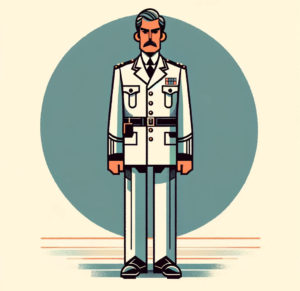 The Inspector is a bureaucrat who informs K. of his predicament. He provides little to no information about the charges or the process, reflecting the opacity and indifference of the system that K. faces. The Inspector’s detachment and formality contribute to the novel’s atmosphere of alienation.
The Inspector is a bureaucrat who informs K. of his predicament. He provides little to no information about the charges or the process, reflecting the opacity and indifference of the system that K. faces. The Inspector’s detachment and formality contribute to the novel’s atmosphere of alienation.
Fraülein Bürstner
Fraülein Bürstner is a neighbor of K. who becomes a fleeting object of his desire. After his arrest, K. confides in her, seeking some form of understanding or compassion. Their interaction is awkward and intimate, highlighting K.’s yearning for normalcy and human connection amidst his crisis.
The Advocate (Herr Huld)
Herr Huld is the lawyer K.’s uncle insists he hire. Bedridden and seemingly influential, Huld conducts his business from his bed. However, his convoluted advice and lack of action illustrate the inefficacy and perhaps the complicity of legal counsel within the kafkaesque justice system.
Leni
Leni is the Advocate’s nurse and lover. She quickly becomes infatuated with K. and represents another aspect of the court’s reach into K.’s life. Her nurturing demeanor contrasts with the predatory nature of her affection, complicating K.’s emotional landscape.
The Manufacturer
The Manufacturer is an acquaintance of K. who introduces him to the painter Titorelli. His role is minor, but he serves as a connector within the web of the court’s influence, showing how the trial seeps into various facets of life.
The Painter (Titorelli)
Titorelli is a court painter who has insider knowledge of the judicial process. He offers K. paintings and legal advice, but his help is dubious. Titorelli represents another enigmatic figure who illustrates the entanglement of art, commerce, and the law, as well as the corruption within the system.
Block, the Tradesman
Block is another client of the Advocate, whose case has been dragging on for years. His subservience and the extent to which his trial has consumed his life serve as a warning to K. of what his future could hold. Block’s character demonstrates the dehumanizing effect of the court system on an individual.
The Priest
The Priest meets K. in the cathedral and tells him the parable of the doorkeeper. As the court’s chaplain, he occupies a position of moral and existential authority. His dialogue with K. is one of the most significant exchanges in the novel, full of allegorical meaning regarding the nature of the law and the individual’s quest for justice.
Interesting Facts About The Novel And The Author
- Unfinished Work: Kafka never completed “The Trial” during his lifetime. The novel was published posthumously by Max Brod, Kafka’s friend and literary executor, who disregarded Kafka’s wish to have his unfinished manuscripts destroyed.
- Author’s Reluctance: Kafka was hesitant about his work; he often expressed dissatisfaction with his writing and rarely considered his stories finished or satisfactory.
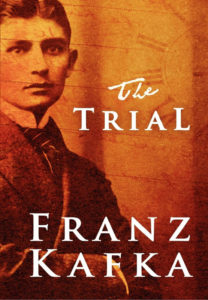 Existential Influence: “The Trial” is a seminal work in the genre of existential literature, though Kafka never identified with the movement. The novel’s themes of alienation, guilt, and the illogical nature of the universe are central to existentialism.
Existential Influence: “The Trial” is a seminal work in the genre of existential literature, though Kafka never identified with the movement. The novel’s themes of alienation, guilt, and the illogical nature of the universe are central to existentialism.- Prescient Themes: Kafka’s depiction of an incomprehensible bureaucratic system has been interpreted as prescient of the totalitarian regimes that would emerge after his death.
- Kafka’s Profession: Kafka worked in insurance and dealt with bureaucracy, which influenced his depiction of the oppressive and nonsensical legal system in “The Trial”.
- Prague’s Influence: Kafka’s experience living in Prague, a city with a complex legal history and a mix of German and Czech cultures, is reflected in the intricate and convoluted settings of his novels.
- Language Barrier: Kafka wrote in German, though he lived in a predominantly Czech-speaking area and was also fluent in Czech. This multilingual background contributed to the themes of communication and misunderstanding in his work.
- Posthumous Fame: Kafka received little fame during his lifetime, and “The Trial” only gained significant attention and critical acclaim after his death.
- Cultural Term: The term “Kafkaesque” has come to denote situations or concepts reminiscent of Kafka’s work, particularly scenarios marked by surreal distortion and a sense of impending danger.
- The Law’s Parable: “The Trial” contains the famous parable “Before the Law,” which has been the subject of extensive analysis and interpretation on its own, reflecting the complex layers of Kafka’s writing.
- Adaptations: “The Trial” has been adapted into various media, including films by Orson Welles (1962) and David Jones (1993), and it continues to inspire contemporary art and thought.
Frequently Asked Questions About “The Trial”
What is the significance of Josef K.’s arrest?
The arrest of Josef K. serves as the catalyst for the novel’s exploration of the absurdity and helplessness experienced by an individual caught in an opaque and arbitrary judicial system. It symbolizes the struggle against unseen and unexplained forces that control and dictate human fate, reflecting the individual’s vulnerability in a modern, bureaucratic society.
How does Kafka’s profession influence the novel?
Kafka’s profession as a legal secretary at an insurance company exposed him to the intricacies and often the absurdities of bureaucracy. This experience is mirrored in “The Trial” through the convoluted and impersonal legal proceedings that Josef K. cannot comprehend or influence, highlighting the dehumanizing effects of bureaucratic systems.
Why doesn’t Josef K. ever learn the nature of his crime?
Kafka deliberately omits the specific details of K.’s crime to underscore the novel’s themes of existential uncertainty and the incomprehensibility of the law. This omission serves to create a sense of anxiety and to critique a justice system that is not just, rational, or accessible.
What does the parable “Before the Law” signify in the novel?
“Before the Law” is a parable within the novel that illustrates the elusiveness and inaccessibility of justice. It serves as a metaphor for the entire novel, encapsulating the main character’s—and by extension, humanity’s—incessant but futile pursuit of an understanding that is perpetually out of reach.
Is “The Trial” a reflection of Kafka’s personal experiences?
While “The Trial” is not a direct autobiography, it does reflect Kafka’s personal experiences with feelings of guilt, alienation, and conflict with authority figures, particularly his father. The novel channels Kafka’s internal struggles and his perception of an individual’s powerless stance against dominating societal structures.
Are there any autobiographical elements in “The Trial”?
Autobiographical elements in “The Trial” can be discerned in Kafka’s strained relationship with his father, his ambivalence towards marriage, and his self-doubt about his work and worth. These personal conflicts are mirrored in Josef K.’s interactions and the oppressive circumstances he faces.
Dare to decipher Kafka’s enigma or dismiss it as mere legal gibberish? 🤯💼 Cast your verdict in the comments and join the trial of public opinion! ⚖️👨⚖️

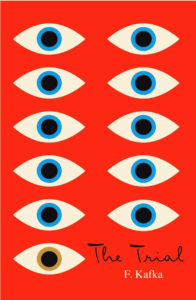
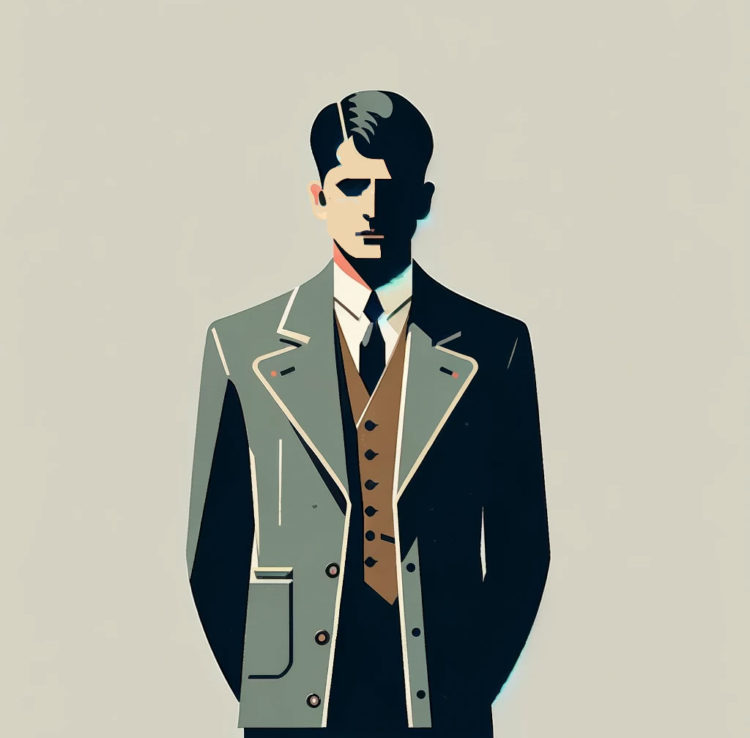
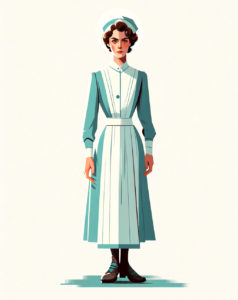

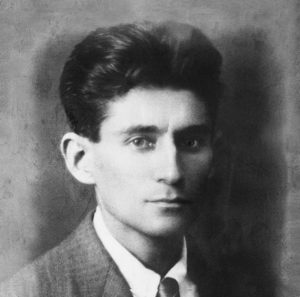
Comments